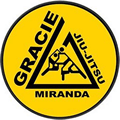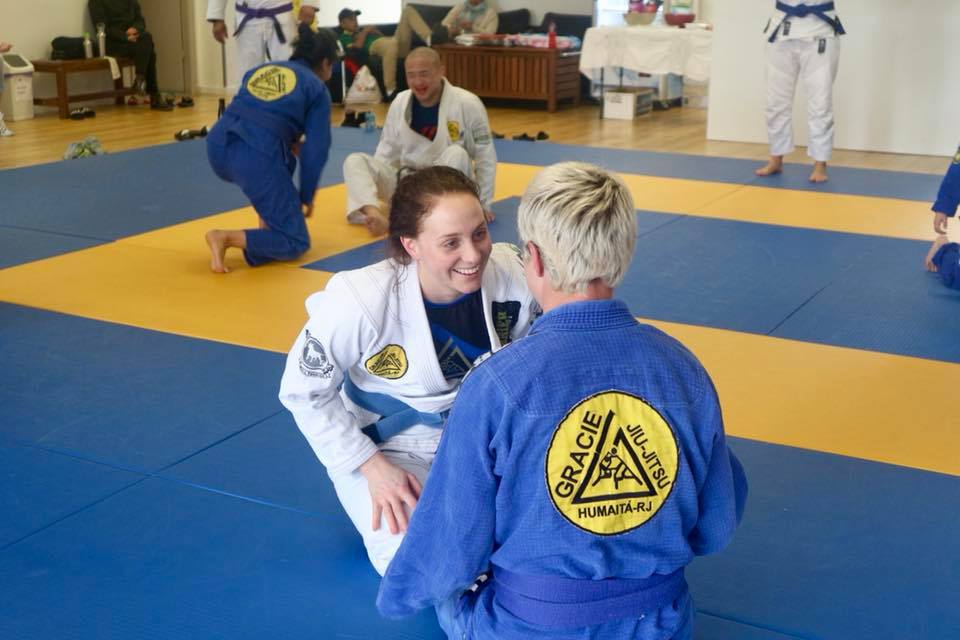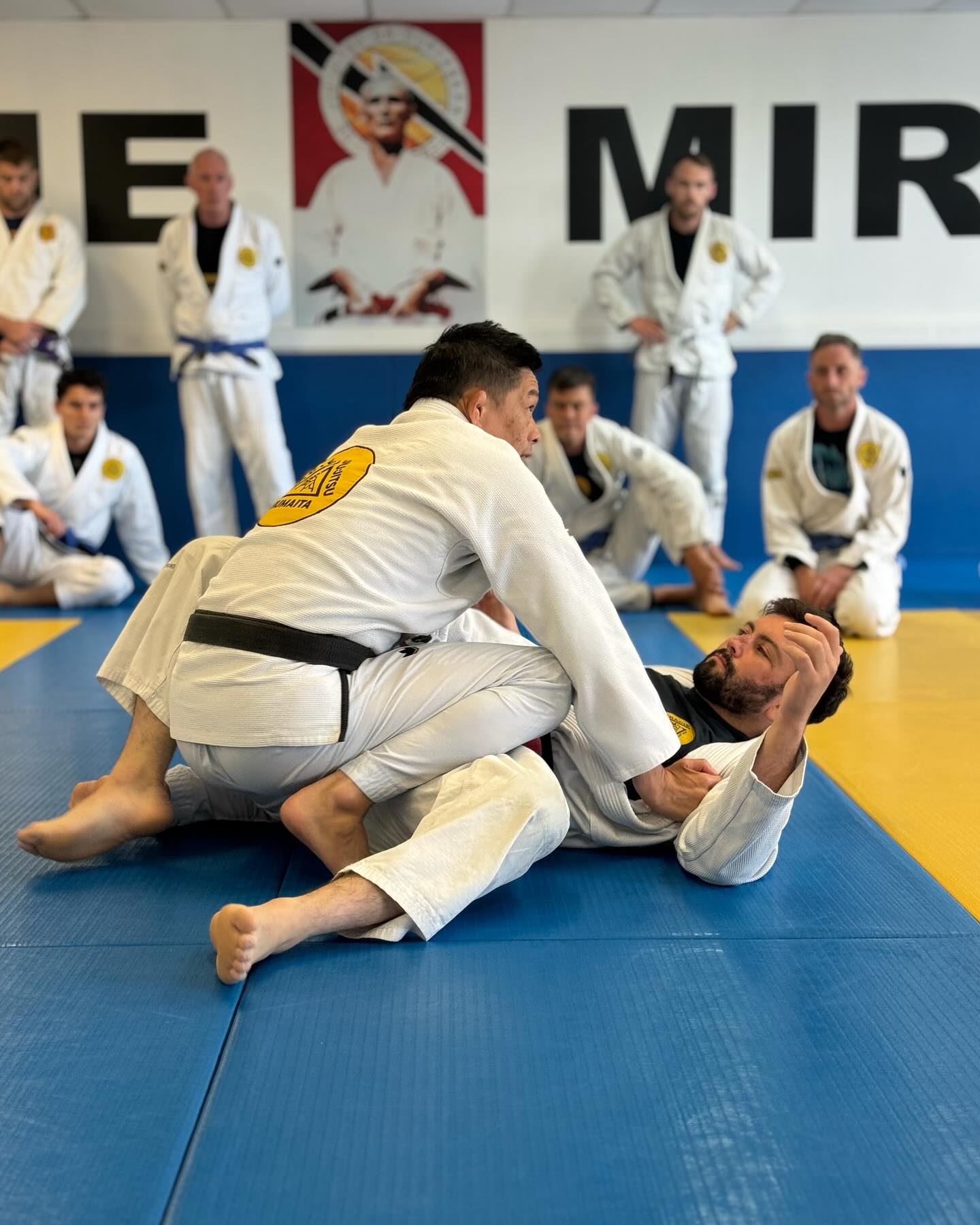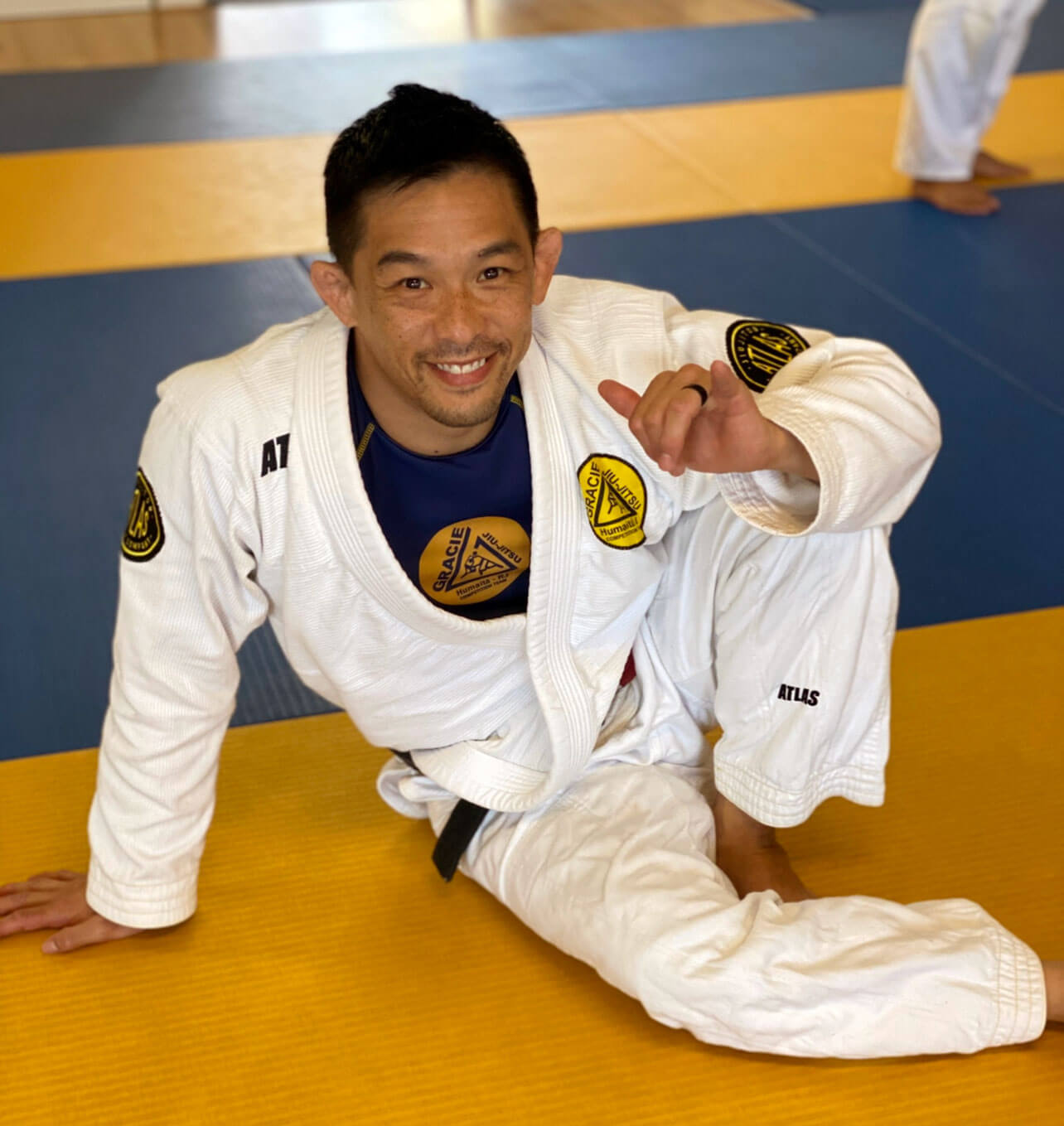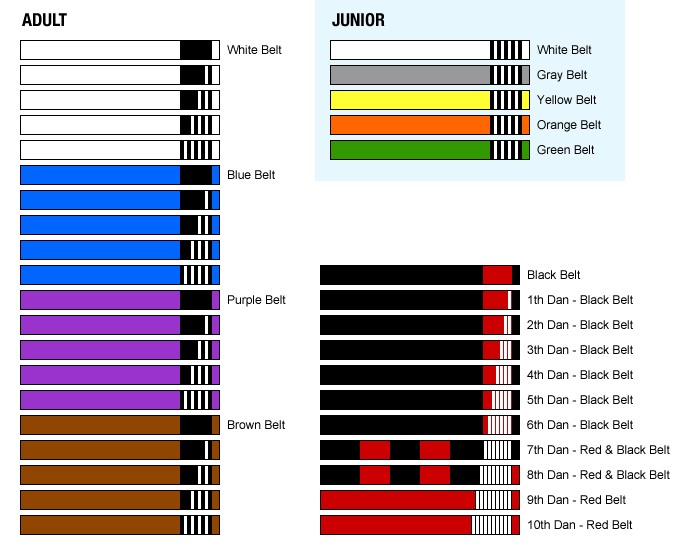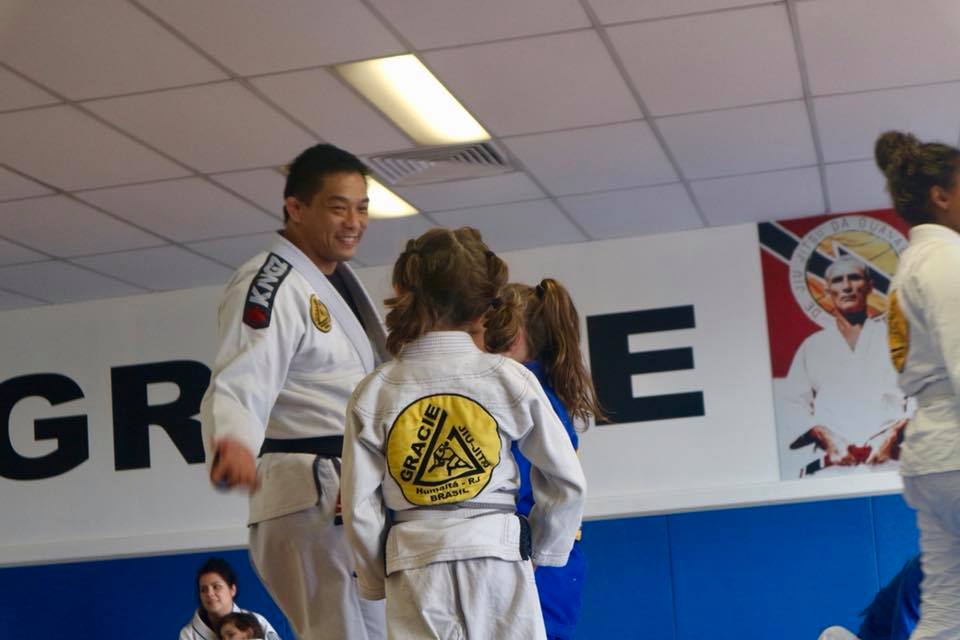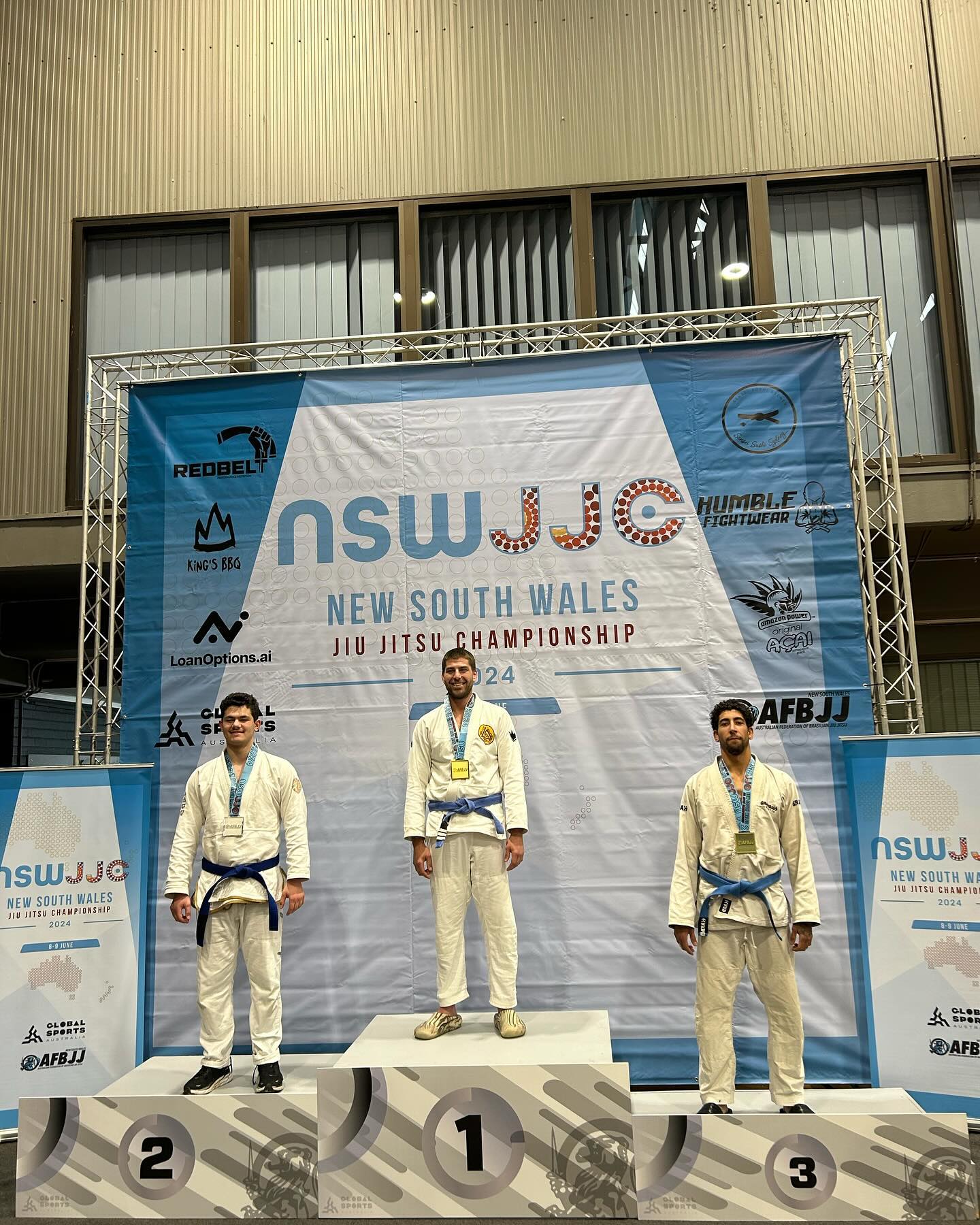Brazilian Jiu Jitsu is addictive – which is why people from all across Sutherland Shire come to train at Gracie Miranda up to 5 or 6 times a week. However, if you want to optimise your game and extend your Jiu Jitsu lifespan, there’s plenty you can do off the mats too.
Being a grappling martial art, Brazilian Jiu Jitsu (BJJ) poses a lower injury risk than many striking martial arts. After all, trying to elbow an opponent in the face has a habit of causing injury. But BJJ, through wear and tear, can still be rough on your body, including your joints and posture.
Thankfully, much of the potential risks can be circumvented through a few supplemental activities.
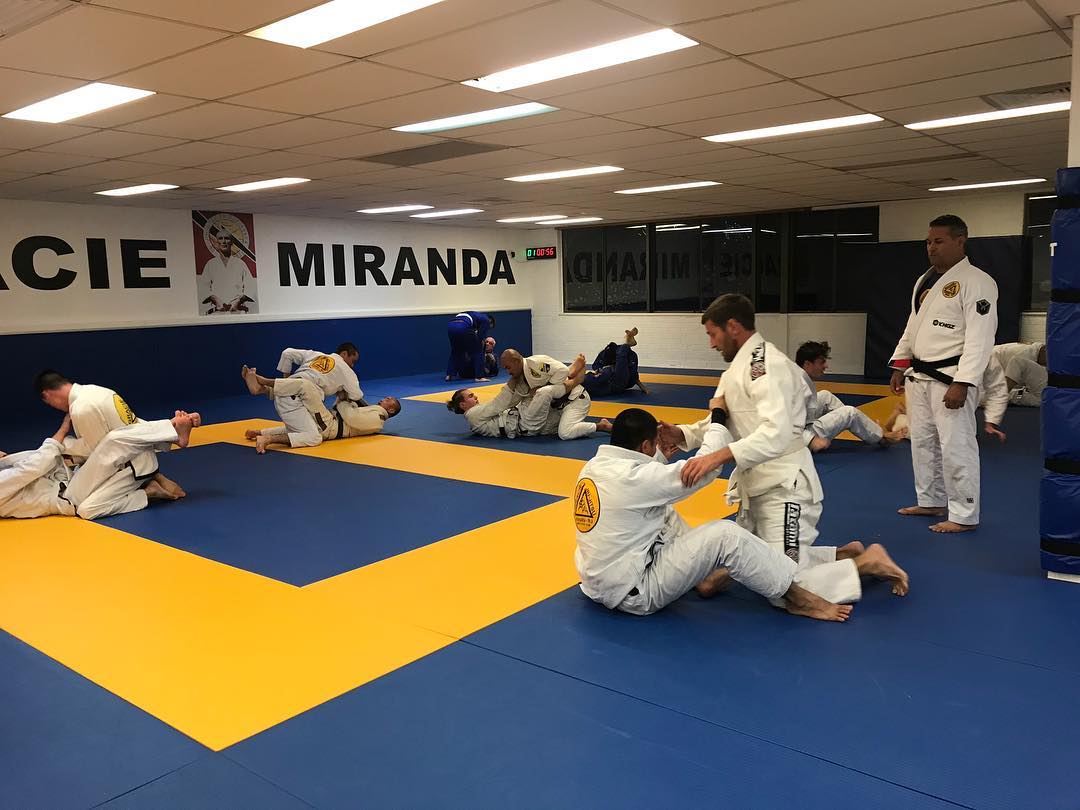
Yoga and stretching
Proper stretching has three huge benefits for Brazilian Jiu Jitsu practitioners. Firstly, stretching after class will reduce muscle soreness in the following days. Secondly, extensive stretching will make you more flexible, which makes certain positions more comfortable and techniques more easily doable. Finally, consistent stretching will help prolong your BJJ lifespan and ward off aches and pains.
Most people know they should stretch, but fewer actually do so regularly. Further, many who do will do only a few perfunctory stretches for a minute or two after class. That’s a start, but it’s not enough to yield real benefit.
For post-class stretching, you should be thinking more like 10 or 15 minutes. Gracie Miranda has plenty of mat space – use it! If you have to rush out of the academy, try to stretch at home before you shower or go to bed. Ten or 15 minutes will be enough to negate much of the wear and tear of a preceding class. Dedicate 45 minutes to an hour several times a week, though, and you’ll feel much better much quicker.
What stretches should you do? That depends on you, although lower back, hips, hamstrings and pecs are common tight areas for grapplers. A few resources that might help: This video from Yoga for BJJ and this one from Chewjitsu.
If you’re more serious about improving flexibility and recovery – and have the time and money – yoga is a terrific supplement to Brazilian Jiu Jitsu. You’ll get all of the above benefits and the addition of increased control of your breathing. And hey, it’s not like there’s a shortage of good yoga places in Sutherland Shire.
One or two resistance workouts a week
Just as stretching both can improve your BJJ and ward off injury, so does resistance training.
BJJ is often referred to as a full-body workout. This is true in the sense that it engages large muscle groups all over your body. However, it does so while leaving out some notable exceptions. Lack of neck and upper back engagement, for instance, can lead to Forward Head Syndrome.
This is compounded by age-related muscle loss, which affects people in their 40s and 50s onwards. The less muscle on your body, the more stress is placed on joints. As you know by now, joints are very valuable in Jiu-Jitsu!
To offset these and other maladies, you should do one or two strength training workouts a week. That’s according to Steve Maxwell, a strength and conditioning coach (who worked with Royce Gracie before the first UFC) and a black belt in his own right.
“You just need a general strength training program,” he said on the Grappling Central Podcast in 2017. “It doesn’t matter if it’s barbels, dumbbells, body weight training.” Not only should this training focus on large muscle groups, like back, chest and legs, but also on postural corrective exercises.
However, he notes overtraining is important to consider.
“Grapplers do not need more work… you don’t need more than two strength workouts per week,” he said. “If you’re getting on the mat four or five times a week, you’d find you’d get great results even once a week.”
It’s true that technique beats strength – but if the technique of two BJJ competitors is equal, the stronger one will probably win. Plus, you’ll be happy for the extra muscle when it comes time to hit Cronulla Beach next summer.
Sleep!
Shut eye is crucial, and not the type you get from a rear-naked choke. Sleeping a minimum of 7 hours is known to improve not just cognitive performance (which helps you remember new techniques and details), but also keep your reflexes sharp.
Moreover, training six times a week and doing all sorts of supplemental yoga and weight training is great, but losing out on sleep means losing out on progress. It’s important for anyone, especially those who exercise regularly, to get sleep that’s high in both quality and quantity.
Courtesy of neuroscientist Matthew Walker, here are some tips for a full-night’s rest:
- Avoid smartphones, laptops and TV for 60 minutes before bed
- Try and sleep before midnight
- Try and wake up everyday at the same time
- Drink no caffeine after 1 P.M.
If you’re reading this and you’re not yet addicted to Brazilian Jiu Jitsu, come down to Gracie Miranda for a free introductory lesson.
Author – Daniel Van Boom
